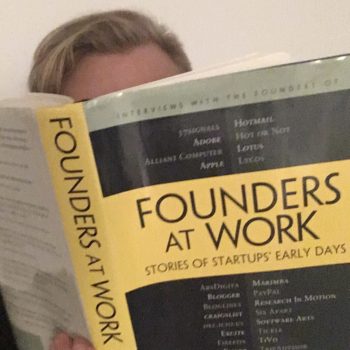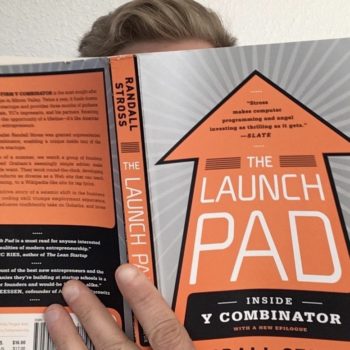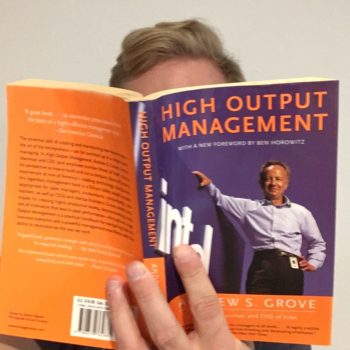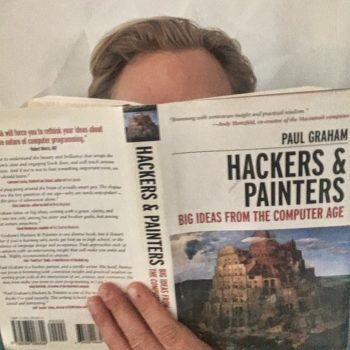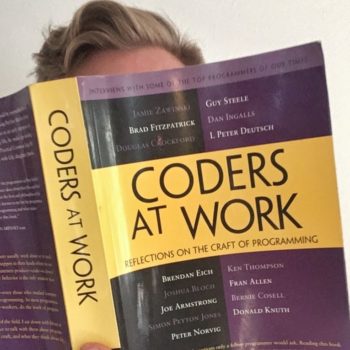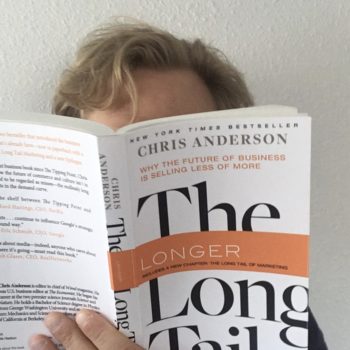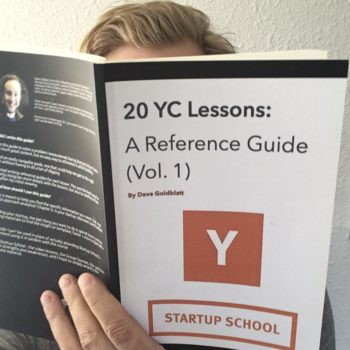How strongly do I recommend Founders at Work?
9 / 10
Review of Founders at Work
Founders at Work is often celebrated for its startup flair, but I enjoyed it for a different reason: nostalgia.
Reading the histories of del.icio.us, Lycos, Firefox, Six Apart, and other companies peaking in the early 2000s threw me back to a time when the web improved each and every day.
This book is part inspiration and part history, with many lessons still applicable for startup founders and technical leaders. My favorite interviews were:
- Steve Wozniak, Apple
- Paul Buchheit, Gmail
- Craig Newmark, craigslist
- Caterina Fake, Flickr
- Joshua Schachter, delicious
- Charles Geschke, Adobe
- Philip Greenspun, ArsDigita
- Joel Spolsky, Fogcreek
- Mena Trott, Six Apart
The only downside to this book is the emphasis on venture capital and fundraising, which felt less interesting to me. If you like this interview format but want a book about coding, check out Coders at Work.
20% higher salary, 100-200% more throughput
Stephen Kaufer the Cofounder of TripAdvisor makes a point that resonates with my experience as a hiring manager and engineering leader, “The difference in almost any position between someone who does a good job and someone who does a great job might be 20 percent more in salary, but it’s 100 or 200 percent more in throughput.”
Engineering managers are held responsible for the output of their teams. In some companies, we’re also judged by customer outcomes in addition to outputs.
As a hiring manager, budget flexibility can hugely benefit the organization because you don’t know when a high throughput candidate will enter your funnel.
Open the tools of production and creativity to everyone
Flickr, Blogger, Adobe, Six Apart, Bloglines, Apple. Founders at Work is filled with stories of technologists opening the tools of production and creativity to the masses.
You see this trend continue today, as amateurs turn semi-pro and create content that fills the long tail.
Startup founders neeed a partner
Almost every founder interviewed by Livingston says you need a partner. They can’t imagine their company surviving without one.
Go someplace where people don’t think you’re crazy
Brewster Kahle, the founder of Alexa and the Internet Archive passes down advice from one of his mentors, “Go someplace where people don’t think you’re crazy.”
Similar to what Paul Graham describes as Florence in 1450, Silicon Valley and Boston in particular stand out as the place to start a tech company.
I personally think this is particularly great advice for a young software engineer with few responsibilities.
Solve a problem that you have
Craigslist started as an email to help out friends. Rails was developed trying to build a SaaS product. Hotmail was a workaround for corporate firewalls that blocked email.
Almost all of the startups featured began with one or two people just trying to fix a problem they personally experienced.
Those who did the work remember the details
I felt blown away by the technical details Steve Wozniak and others referenced many years after performing the work.
As a hiring manager, I think this is a good filter for understanding senior engineer capabilities. Usually candidates who actually did the work can recite nuanced details even years later.
